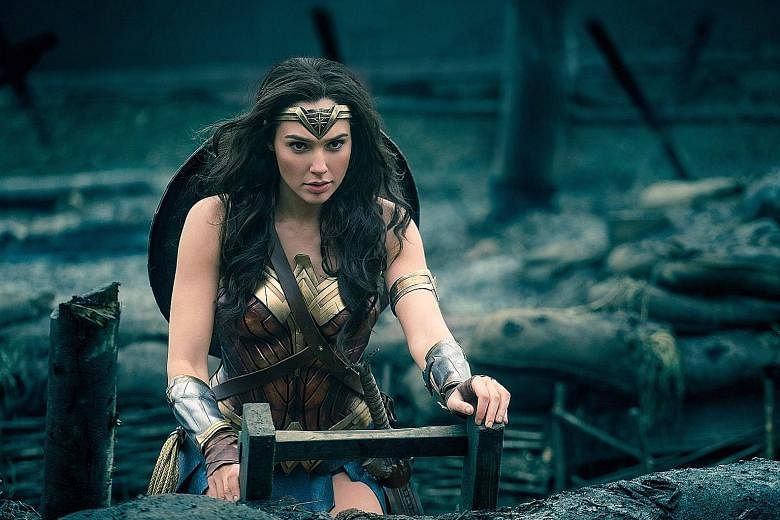LOS ANGELES • Last year, three critically lauded movies were directed by women, with Patty Jenkins helming Wonder Woman, Greta Gerwig shepherding Lady Bird and Dee Rees behind Mudbound.
But do not pop the champagne yet if you think the power play in Hollywood has changed.
An annual diversity survey has found that the United States movie industry is no more diverse than it was a decade ago.
It noted that "there was no meaningful or sustained change in 2017" for female, black or Asian directors in Tinseltown.
The report, commissioned by the University of Southern California's Annenberg School for Communication and Journalism, surveyed 1,100 films made in the last 11 years.
It found that just 4 per cent were directed by women - which equates to 22 male directors hired for every woman.
The study revealed that the female directors typically had shorter careers. On average, they started later and ended earlier than the careers of men.
And 83.7 per cent of the women never directed a second movie, as opposed to 55.3 per cent of the men.
Women were more likely to find it much harder to graduate from independent, low-budget features and television shows to higher-grossing movies.
Furthermore, just 5.2 per cent of all directors - male and female - were black or African-American, and 3.2 per cent were Asian.
Of the 43 female directors who made movies between 2007 and last year, four were black, two Asian and one Hispanic (Mexico's Patricia Riggen, director of Chilean mining disaster dramatisation The 33).
"Hollywood's 'female director problem' has been the source of much dialogue over the past several years," said the report's author, Ms Stacy Smith.
"The evidence reveals that despite the increased attention, there has been no change for women behind the camera.
"Mere conversation is not the answer to these problems - and the time for conversation is up.
"Until major media companies take concrete steps to address the biases that impede hiring, nothing will change," she highlighted.
The findings will disappoint those hopeful for change in the film industry, after a year marked by dramatic revelations of sexual predation and harassment and the subsequent #MeToo social media campaign.
It appears that these developments have yet to make an appreciable impact on the industry's power structures.
"Some of the largest media companies in the world continue to underperform when it comes to hiring diverse directors and that inequality begins at the top," the report stated.
More than 82 per cent of senior executives at the seven top media companies were male, the survey found, and of the women, a mere four per cent were from under-represented racial/ethnic groups.
On the directors' boards, under 20 per cent of positions were filled by women.
The report warns of a potentially damaging disconnect between progress on diversity in the industry and public sentiment.
"Consumers have voted with their dollars in extraordinary ways this year, propelling films like Wonder Woman and Beauty And The Beast to the top of the box-office charts," it stated.
"They have also turned away from film and to other platforms and different content to fulfil entertainment needs - issuing a strong warning to the film industry that business as usual is simply unacceptable."
GUARDIAN

